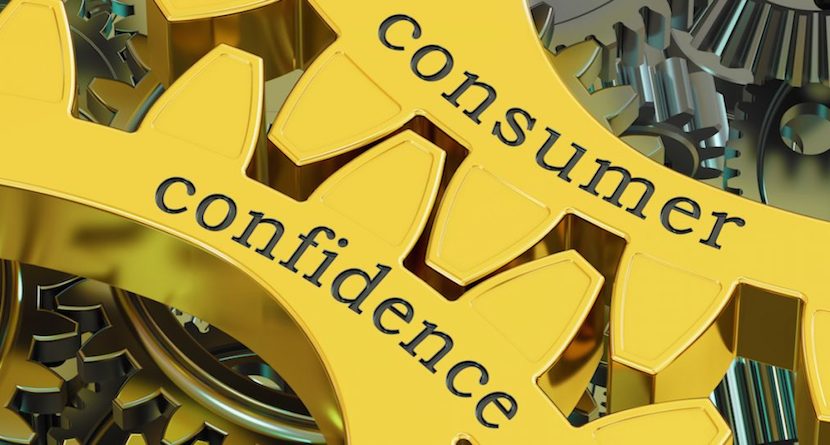At last week’s PGA Merchandise Show in Orlando, I presented the results of our 11th annual golfer omnibus study. For over a decade, this survey, conducted at the immediate start of the new year, measures golfer attitudes, perceptions, behaviors and expectations for the year ahead.
We field this research with a representative U.S. sample of over 1,000 golfers. For the 2020 study, we actually increased our sample size significantly, to over 3,000, largely so that we could draw projectable results across a number of subpopulations. This includes SwingU Strategies readers.
I’ve been sharing some of your specific results over the past couple of weeks, in this space.
Looking at the broader full golfer population, we use the omnibus to also gauge “consumer confidence.” A consistent battery of attitudinal questions has been deployed each year to uncover the level at which golfers agree or disagree about the state of the U.S. economy, the state of the game of golf, and the levels at which golfers believe that the year ahead and beyond will bring economic prosperity.
As a point of reference, golfers have historically been significantly more bullish about the economy as a whole and their own personal prospects relative to the U.S. population at large. To some extent, this can be attributable to favorable golfer demographics. However, we’ve conducted several attitudinal studies, particularly in the travel space, where we compared attitudes between golfers and non-golfers with similar household incomes, net assets and life stages to find golfers possessing a rosier outlook. As we enter the new decade, our latest findings are at a particular high point.
Here are some of the highlights.
To start, among golfers in 2020 we are seeing a nice and meaningfully positive shift in bullishness about the state of the game itself. More than half are highly optimistic about golf’s future. 52% strongly agree with the statement, “I’m optimistic about golf’s future.” That equates to an agreement score of 8, 9 or 10 on a ten-point scale, and most significantly represents a +16% lift from a year ago when we saw less than half of golfers express the same sentiment.
We’re also observing a big shift in those that strongly feel that the mainstream media has been unnecessarily sounding the alarm bells about the health of the game. Only 16% felt this way in 2019. Contributing to this is a consistently upward sentiment shift in those who see a game that has become more inclusive and welcoming; another positive indication that our grassroots efforts are having an impact. And this manifests itself in a 30% improvement over the past five years in those who feel that the game is facing major participation challenges. In 2015, nearly six in 10 saw that as a problem. Only four in 10 feel that way, today.
Whenever we see positive shifts in golfer optimism about the game, it’s insightful to see how that maps against overall golfer consumer confidence, and we are seeing quite a difference in where we are today relative to ten years ago.
Significant shifts show the majority of golfers now feel better about their present and future financial condition. This is manifesting itself in higher perceptions of self-indulgence and a willingness to spend on favorite past times in the future. Specifically, we now see 61% of golfers strongly agree that “I feel that I will be much more comfortable in my retirement than my parents are/were.”
An identical 61% strongly agree that “I’m confident that I will have enough money to retire in comfort.” These two 2020 results compare favorably to 42% and 36% of golfers who felt the same ten years ago. More than half (53%) “feel better about my financial situation today than I did a year ago.” In 2010, those golfers strongly agreeing with this statement sat at only 27%.
Recall that there were fears of an 11% unemployment rate 10 years ago, and today we sit at around 3%. Less than half of golfers now strongly agree that there is no such thing as job security anymore, for the first time in 10 years. That doesn’t mean that all is back to where things were. Other research we’ve conducted, speaks to beliefs in a fundamental shift in how consumers view employment. But among the broad golf audience, we are at a point where people are feeling better about themselves.
I’m encouraged to see these historically positive sentiments and intent measures in this year’s study, and it is clear that the macroeconomy will continue to play a role in how golfers feel about the state of the game and their ability to enjoy it and their leisure time to the fullest.
Currently, we’re in unprecedented positive waters. But recent history has shown us that this can be fleeting. Whereas there was once a strong belief that golf was largely recession-proof, we need only look back to 2008-2010 to find a counter-argument to that notion.
The continued adversarial political climate in this election year certainly has the potential to throw a wrench into things. My time at the PGA Show again included attendance at the We Are Golf Annual Meeting, where bi-partisan lobbyists representing the golf industry, shared a perspective that suggested no immediate end in sight to legislative inertia.




